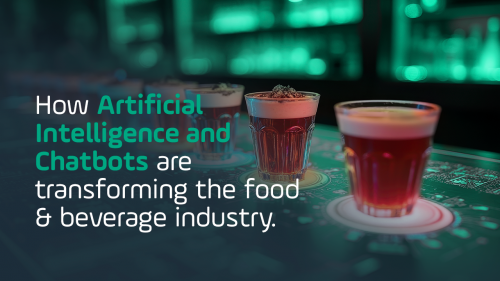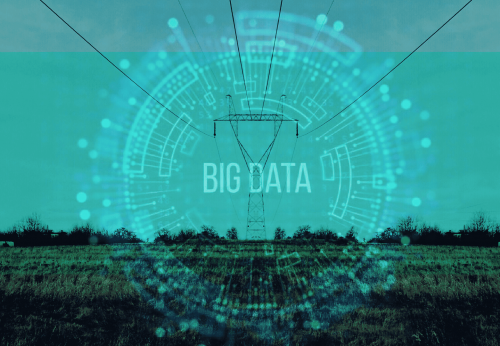How Artificial Intelligence and Chatbots Are Transforming the Food & Beverage Industry

Have you ever imagined how Artificial Intelligence (AI) and chatbots are reshaping the food and beverage market? From production to customer engagement, these technologies are transforming traditional processes into agile, personalized, and highly efficient strategies.
With increasing demand for innovation, companies are leveraging AI and automation to streamline operations and deliver more engaging experiences to consumers. But how does it work?
Keep reading as we explore the key applications and benefits of AI and chatbots in this dynamic sector.
Intelligent and Automated Production
Production is one of the areas in the food and beverage industry most positively impacted by AI. With technologies such as Machine Learning and IoT sensors, companies can monitor every stage of production in real-time. Smart systems detect inconsistencies in product quality and automatically adjust parameters to maintain consistent standards.
For example, a brewery can use AI to analyze variables such as temperature, pressure, and ingredient composition during fermentation to ensure a consistent flavor across all batches. These tools also enable predictive maintenance, avoiding unexpected downtime that could disrupt operations.
A McKinsey study revealed that the use of AI in industrial processes can increase efficiency by up to 30% and reduce waste by 25%. This proves that automation not only enhances productivity but also supports more sustainable production.
Improved Distribution and Logistics
Logistics is one of the biggest challenges in the food and beverage sector, mainly due to the need for speed in storing and transporting perishable goods. AI is changing this scenario by integrating forecasting tools that optimize routes, adjust inventory levels, and anticipate demand based on historical data and consumption trends.
For instance, Machine Learning algorithms can analyze weather patterns to predict increased demand for cold beverages in specific regions during summer. This enables more accurate logistics planning, reduces waste, and prevents stock shortages.
Real-time tracking systems also provide full visibility into the supply chain, allowing companies to respond quickly to delays or logistical issues. According to industry reports, businesses that invest in logistics automation report up to 20% cost savings in operations.
Chatbots: The New Customer Support Channel
Chatbots are revolutionizing customer service in the food and beverage industry. Thanks to AI, these tools can answer frequently asked questions, recommend products, and process orders in seconds. This not only enhances the customer experience but also boosts operational efficiency.
Imagine a customer looking for the perfect wine and meat pairing for a dinner party. A well-trained chatbot can suggest options based on personal preferences and offer pairing tips. This increases customer satisfaction and improves conversion and retention rates.
Studies show that chatbots can reduce customer service time by up to 80%, freeing up human teams to handle more complex inquiries. Plus, they offer 24/7 availability — a key advantage in such a competitive market.
Personalized Marketing and Consumer Experience
In the food and beverage market, personalization is an increasingly valued differentiator. AI enables companies to analyze consumer behavior data to craft more targeted and effective marketing campaigns.
For example, big data systems can identify regional preferences and adjust marketing strategies to promote specific products in certain areas. A customer who frequently purchases wine, specialty cheeses, or gourmet meats could receive exclusive offers or personalized recommendations based on past purchases.
AI also supports interactive experiences, such as mobile apps that provide detailed information about product origin and ingredients via QR code scans. This not only adds value to the product but also creates a strong emotional connection with the customer.
Sustainability and Environmental Responsibility
Sustainability is a growing priority in the beverage industry, and AI plays a critical role in this area. Smart systems help identify ways to reduce resource consumption — like water and energy — throughout production.
For example, IoT sensors can monitor real-time water usage, enabling automatic adjustments to avoid waste. Automation also supports waste management, ensuring recyclable materials are properly disposed of or reused.
These initiatives not only benefit the environment but also meet the expectations of consumers who prioritize eco-conscious brands. Companies that adopt sustainable practices often stand out in the market and attract more engaged audiences.
Conclusion
Artificial Intelligence and chatbots are transforming the food and beverage industry by offering solutions that combine efficiency, personalization, and sustainability. From automated production to personalized customer experiences, these technologies are essential for companies looking to lead in a constantly evolving market.
If your company is ready to explore these innovations, Mouts TI is here to be your strategic partner.
Contact us today and find out how we can help shape the future of your business.
Related news
Innovation, the global market and divers topics about the technology universe are currently available on our blog.
 Cases
Cases
Big Data in energy: how to manage data in the energy sector?
The energy sector is one of the fundamental pillars of the global economy, driving everything from large industries to domestic consumption. With the advancement of digital technologies, the amount of data generated in this sector has increased exponentially, making Big Data an essential tool for companies seeking to stand out in a competitive market. But how to collect and analyze this data effectively? And what are the benefits of a well-done analysis?
 Cases
Cases
Energy and sustainability: 3 innovative technologies in the energy sector
Sustainability has become a central issue in the energy sector, driven by the need to reduce environmental impact, ensure energy security and meet growing demands for cleaner energy sources. With increasing pressure to reduce carbon emissions and adopt more sustainable practices, the sector faces significant challenges, but also promising opportunities.
 Cases
Cases
Why is cloud migration important for the energy sector?
Energy market professionals can already see that the sector is undergoing a significant transformation, driven by the need for greater efficiency, sustainability, and innovation. Amid these changes, cloud migration has stood out as one of the main strategies for companies looking to optimize their operations, reduce costs and improve collaboration.
